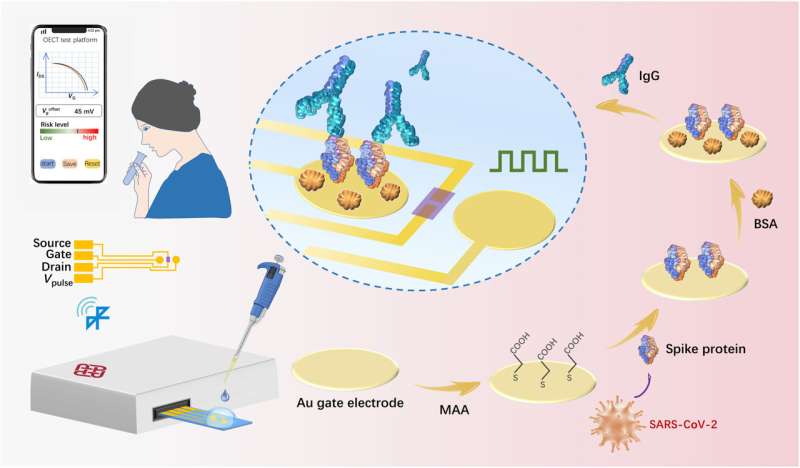
A team of researchers at The Hong Kong Polytechnic University has developed what they describe as a fast and inexpensive way to test for SARS-CoV-2 antibodies in human patients. The results are published in the journal Science Advances.
When a person becomes infected by the SARS-CoV-2 virus, their immune system responds by creating antibodies as one of the ways to fight the infection. The immune system continues to produce such antibodies long after the infection has been cleared. Unfortunately, it is still not known just how long the body continues to make them; thus, discussions regarding when to administer booster shots have become heated in recent weeks. A possible way to reduce such discourse and to relieve the minds of patients, would be access to a cheap and readily available testing device that could measure the level of antibodies produced by a given individual. Such a device would also be able to report if a person had previously been infected with the SARS-CoV-2 virus, or if they had been vaccinated against it. In this new effort, the researchers in Hong Kong are claiming to have created just such a device.
The new device is based on the use of organic electrochemical transistors—types of transistors that drain current controlled by ions in an electrolyte after injection into a conductor. In this case, the researchers were able to use them to convert bio-signals in bodily fluids to electrical signals that could be analyzed using software running on a smartphone. To make use of the transistors, the researchers placed them inside individual plastic strips which were then fitted onto a housing. During use, a drop of blood or saliva would be placed on the strip, allowing the transistor to do its work. Making it even easier to use, the researchers used Bluetooth so testing could be done wirelessly. Once the analysis begins, results can be returned in as little as five minutes. The researchers claim that that the plastic strips cost as little as US $1.
Source: Read Full Article
